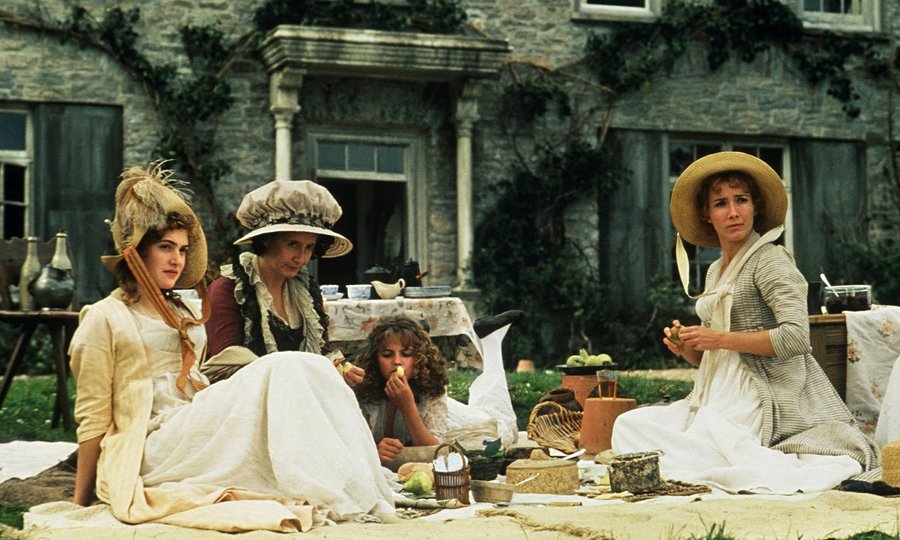Elena Ferrante on Sense and Sensibility: ‘I was passionate about Austen's anonymity’

The Dashwood women, from left: Marianne (Kate Winslet), Mrs Dashwood (Gemma Jones), Margaret (Emilie François) and Elinor (Emma Thompson) in the 1995 Ang Lee film of Sense and Sensibility. Photograph: Allstar/Columbia Pictures
This article was published on The Guardian
The fact that Jane Austen, in the course of her short life, published her books anonymously made a great impression on me as a girl of 15. It was the surly English teacher who told us this, and I was tempted to ask why, but I soon abandoned the idea, out of timidity. Meanwhile, I read Pride and Prejudice, but it didn’t interest me. At the time, I was enthralled by the great male adventure novels, with their stories that ranged all over the world, and I wanted to write such books myself: I couldn’t resign myself to the idea that women’s novels were domestic tales of love and marriage. I was past 20 when I returned to Austen. And from that moment not only did I love everything she had written but I was passionate about her anonymity. Sense and Sensibility appeared in October of 1811, in three volumes, with the sole clue: “By a lady”. The three other books that she published in her lifetime – Pride and Prejudice (1813), Mansfield Park (1814), Emma (1815) – also came out anonymously. As for the two novels published posthumously in a single volume, Persuasion and Northanger Abbey, they, too, appeared without the name of the author, but with a note about Austen written by her brother Henry: an interesting example of how the living can both respect and, at the same time, violate the memory of the dead.
I still like to contemplate the moment when Austen decided to make public one of the texts she had been secretly working on for years, to have it printed at her own expense, and even to renounce the idea of a pseudonym. Who wrote Sense and Sensibility? Who invented Marianne and Elinor and their mother and the many female characters who appear, disappear, reappear, first in the confined space of the country, then in London, and, finally, again in the country? Who devised the plot that led both to marriage? Who advanced the story by means of verbal exchanges, conversations that in wit, intelligence, and dramatic force rival those of Shakespeare? Was it Jane Austen or, simply, a lady, no name or last name, an extremely cultured, extremely perceptive lady who was well acquainted with the ways of the landed gentry, who knew the rituals of the London bourgeoisie, who was aware of how unstable the world is – of how everything changes in spite of sense and in the tumult of sensibility?


